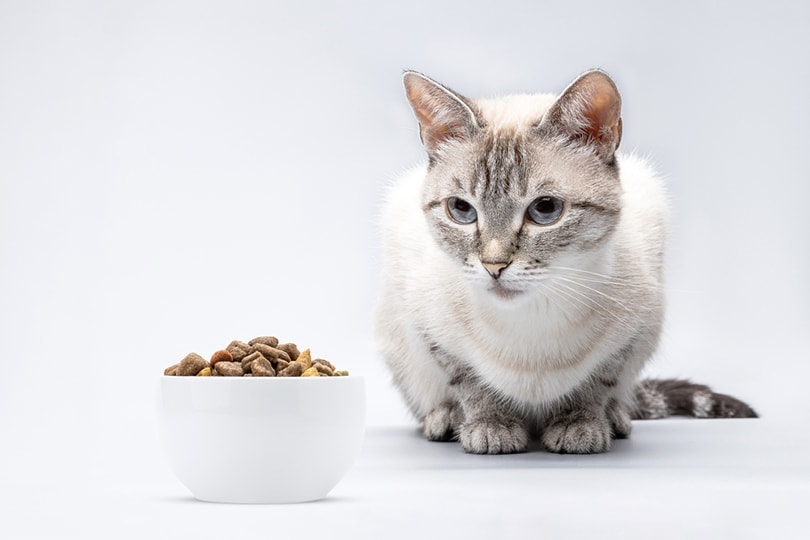Constipation is a common yet uncomfortable problem for many cats. It can significantly affect their health and quality of life. Proper nutrition is key in managing and preventing constipation, making the choice of cat food crucial.
Understanding Constipation in Cats
- Causes of Constipation: Constipation in cats can be caused by various factors, including dehydration, inadequate fiber intake, hairballs, lack of exercise, or certain medical conditions.
- Recognizing Symptoms: Signs your cat might be constipated include infrequent or hard bowel movements, straining in the litter box, or a complete lack of defecation.
Dietary Solutions for Constipation
- High-Fiber Diets: Fiber plays a vital role in digestive health. It helps increase stool bulk and stimulate bowel movements. Cat foods with added fiber sources like pumpkin or beet pulp can be beneficial.
- Moisture Content: Wet food is often recommended for constipated cats due to its higher moisture content, which helps soften stool and promote regular bowel movements.
- Balanced Nutrition: It’s important to ensure that the cat’s diet remains balanced and nutritious, even while addressing constipation issues.
Top Cat Food Brands for Constipation
- Royal Canin Gastrointestinal Fiber Response: Specifically formulated for digestive issues.
- Pros: High in soluble and insoluble fibers, promotes intestinal transit.
- Cons: Prescription required, relatively expensive.
- Price: Around $60 for an 8.8-lb bag.
- Availability: Veterinary clinics and specialized online retailers.
- Hill’s Prescription Diet w/d Multi-Benefit: Targets weight, glucose, and digestive management.
- Pros: Clinically proven to help with gastrointestinal conditions.
- Cons: Requires veterinary approval.
- Price: Approximately $45 for an 8.5-lb bag.
- Availability: Veterinary clinics and select pet stores.
- Blue Buffalo Wilderness High Fiber: A natural, high-protein option with added fiber.
- Pros: Grain-free, includes sweet potatoes for fiber.
- Cons: Higher protein content may not be suitable for all cats.
- Price: About $36 for a 12-lb bag.
- Availability: Widely available in pet stores and online.
- Purina Pro Plan Veterinary Diets FortiFlora Probiotic: A supplement that can be added to your cat’s regular food.
- Pros: Contains probiotics, helps with digestive health.
- Cons: Not a complete diet, to be used as a supplement.
- Price: Around $30 for a 30-sachet box.
- Availability: Veterinary clinics and online.
- Weruva Cats in the Kitchen Pumpkin Lickin’ Chicken: A wet food option that combines protein with pumpkin for added fiber.
- Pros: High moisture content, grain-free.
- Cons: May not be sufficient as a sole diet for some cats.
- Price: Approximately $1.50 per 3-ounce can.
- Availability: Pet stores and online.
Additional Dietary Tips for Managing Constipation
- Hydration: Always ensure your cat has access to fresh water. Consider cat water fountains to encourage drinking.
- Probiotics and Prebiotics: These supplements can support gut health and aid in maintaining regular bowel movements.
Feeding Strategies for Cats with Constipation
- Transitioning to a High-Fiber Diet: Introduce fiber-rich foods gradually to avoid digestive upset.
- Portion Control and Feeding Frequency: Small, regular meals can help maintain digestive regularity and prevent constipation.
FAQs About Cat Food for Constipation
- How can I tell if my cat’s diet is helping with constipation? Look for regular, softer bowel movements and a decrease in straining in the litter box.
- Can I give my cat human food to help with constipation? Some human foods, like canned pumpkin or cooked squash, can help, but consult your vet first.
- How long does it take for a new diet to relieve constipation? It can vary, but improvements are often seen within a few days to a week.
- Are there any ingredients I should avoid in my cat’s food? Avoid high-fat diets and excessive carbohydrate content, which can exacerbate constipation.
- What if my cat refuses to eat high-fiber food? Mix it with their favorite food initially or experiment with different brands and flavors.
Conclusion
Selecting the right cat food is crucial in managing constipation in cats. A diet rich in fiber, with adequate moisture, can significantly improve your cat’s digestive health. Remember to consult your veterinarian before making significant changes to your cat’s diet, especially if they have underlying health issues.

Jane Doe, a veterinarian with over 10 years of experience, combines her deep knowledge of animal health with a passion for pet welfare at PetsPonder.com. With a DVM degree and a commitment to the latest in veterinary science, Jane Doe offers reliable, compassionate advice to help pet owners make informed decisions for their furry companions.

Leave a Reply